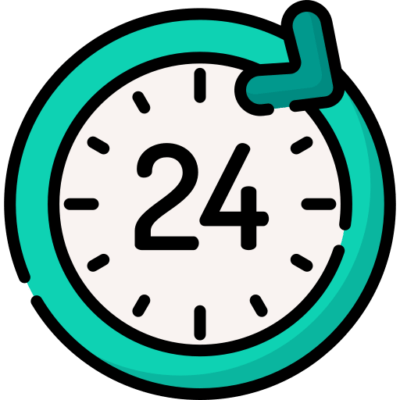Basic Qaida
- Learn Quran Online, Master Tajweed, Study Arabic Language Online, Explore Islamic Studies
Courses Features

Free Trial Class
Receive two complimentary trial classes for any course of your choice to experience our tutors and courses.

Completion Certificates
Students receive an official completion certification upon successfully finishing the course.

100+ satisfied students
Over 100 satisfied students have received certificates upon successfully completing their courses.

24/7 Learn Online
The learning centre is open around-the-clock, facilitating quick and easy Quran learning for students.

1 on 1 Online Sessions
To make Quran learning easier for you and your family, we offer personalized private online learning sessions.

Male & Female Tutors
We have highly qualified, well-trained, and exceptionally capable male and female tutors.
Book Your Free Trial session
Enjoy the trial session without any obligation to enroll. See firsthand how our engaging and effective teaching methods can benefit you and your child.Norani Qaida
An Overview of the Basic Qaida: Essential Learning for Beginners and Kids
The Norani Qaida for kids offers a structured and engaging approach to teach the basics of reading Arabic and learning the Quran. Whether you’re a beginner, a child, or someone looking to improve your Quranic recitation, understanding the Basic Qaida is essential for future Quranic reading. It breaks down the Arabic alphabet into manageable sections, making it easier for kids to grasp each letter’s sound and how they combine to form words. This course covers the Arabic alphabet, learning the letters and sounds, vowel marks, and understanding the correct way to recite the Quran. Here’s a brief overview:
In the Online Basic Qaida Course, You’ll Learn:
An online Noorani Qaida course typically covers the basics of reading the Quran in Arabic. Here are some of the key areas you would likely learn:
Arabic Alphabet
Recognizing and pronouncing each letter of the Arabic alphabet.
Understanding different forms of each letter (initial, medial, final, and isolated).
Vowels (Harakat)
Short vowels (Fatha, Kasra, Damma).
Long vowels (Alif, Ya, Waw).
Sukoon and Tanween.
Consonants and Joint Letters
Reading letters in combination.
Understanding and practicing how letters change when joined together.
Madd Letters
Learning about prolongation rules for vowels.
Practicing different types of Madd.
Rules of Noon Sakin and Tanween
Idgham, Iqlab, Ikhfa, and Izhar rules.
Correct pronunciation and application in Quran reading.
Rules of Meem Sakin
Idgham Shafawi, Ikhfa Shafawi, and Izhar Shafawi.
Qalqalah
Understanding the echoing sound of certain letters.
Practicing the correct pronunciation of Qalqalah letters.
Stress and Emphasis
Rules for Tajweed (proper pronunciation and phonetic rules).
Emphasizing certain letters (Ghunna, etc.).
Practical Reading Exercises
Combining all the rules in reading.
Practicing with short surahs and verses from the Quran.
Fluency and Confidence
Building fluency and confidence in reading Arabic.
Regular practice and correction by instructors.
These courses are designed to provide a solid foundation for beginners to read the Quran correctly and fluently.
Online Basic Qaida Course: Special Programs for Kids
The Online Basic Qaida Course designed as a special program for kids offers an engaging and effective approach to learning the foundational aspects of reading the Quran. Here are some key features and benefits that make this course ideal for young learners:
Kid-Friendly Curriculum
Simplified Lessons: The course content is tailored to be easy for kids to understand, with a focus on simplicity and clarity.
Interactive Learning: Incorporates interactive elements such as games, quizzes, and multimedia resources to keep children engaged and motivated.
Engaging Teaching Methods
Visual Aids: Utilizes colorful charts, animated videos, and flashcards to make learning the Arabic alphabet and pronunciation rules more visually appealing.
Audio Support: Provides audio examples for correct pronunciation, allowing kids to hear and mimic the sounds accurately.
Qualified Instructors
Experienced Teachers: Instructors are trained in teaching young children, using methods that cater to different learning styles and paces.
One-on-One Sessions: Offers personalized attention through one-on-one tutoring sessions, ensuring each child’s unique needs are met.
Flexible Learning Environment
Convenient Scheduling: Classes can be scheduled to fit into the child’s daily routine, offering flexibility for parents and students.
Home Comfort: Learning from home provides a safe and comfortable environment, which can enhance focus and retention.
Comprehensive Content
Alphabet Mastery: Starts with the basics of the Arabic alphabet, ensuring that kids can recognize and pronounce each letter correctly.
Tajweed Basics: Introduces simple Tajweed rules to help children read the Quran with proper pronunciation from the beginning.
Practice and Reinforcement: Regular practice exercises and homework assignments reinforce the lessons learned in class.
Parental Involvement
Progress Tracking: Provides tools and reports for parents to monitor their child’s progress and understand areas that may need more attention.
Supportive Resources: Offers additional materials and guides for parents to help their children practice and learn outside of class times.
Encouraging Environment
Positive Reinforcement: Uses praise and rewards to motivate children, making learning a positive and enjoyable experience.
Peer Interaction: Group sessions and interactive activities allow kids to learn with their peers, fostering a sense of community and shared learning.
Long-Term Benefits
Strong Foundation: Establishes a strong foundation in Quranic reading that will benefit children in their future Islamic studies.
Cultural Connection: Helps children develop a deeper connection to their faith and cultural heritage through understanding the Quran.

